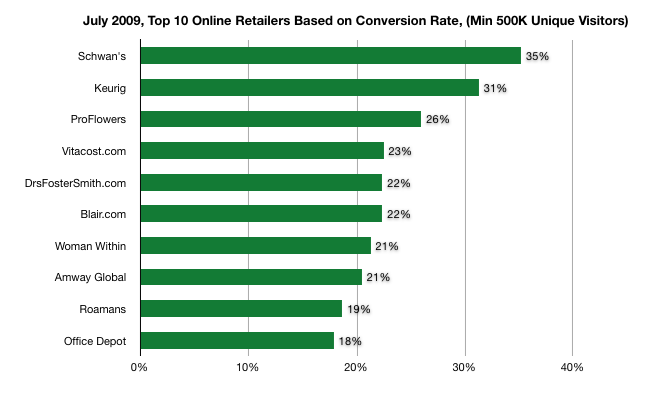Nielsen regularly publishes a list of the top online retailers based on various parameters. It is interesting to see webstore conversion ratios of 25% and above.
Particularly since the average conversion ratio according to Forrester Research is 3% – “eCommerce conversion rates continue to hover at 3%, and retailers know that enormous business can be gained by improving that single metric.” (Trends 2009: U.S. Online Retail, Forrester Research, April 29, 2009)

Source: Nielsen Online, MegaView Online Retail
Note: To be considered, e-commerce sites must have had a minimum of 500K unique visitors during the month. Conversion-rate data is based on visitor conversion rates, not session conversion rates: i.e., No. of unique customers/No. of unique visitors.
Admittedly, consumers who are going to the Schwan’s website (food delivery service) or the Proflowers website (flower delivery) are there to execute on the purchasing decision they have already made. That would result in a very high conversion ratio for these sites.
But, the same case cannot be made for Vitacost.com, an online vitamin seller. I continue to argue that website design and user experience is a major factor towards boosting your webstore conversion ratio.
Here are a few articles I have written on how small business ecommerce merchants can improve their webstore conversion ratio.
